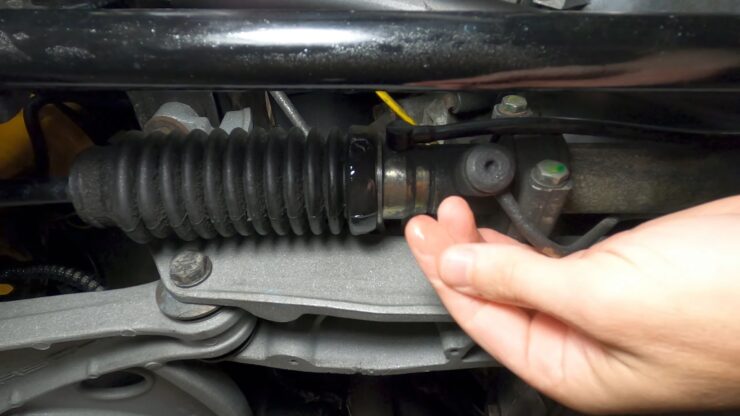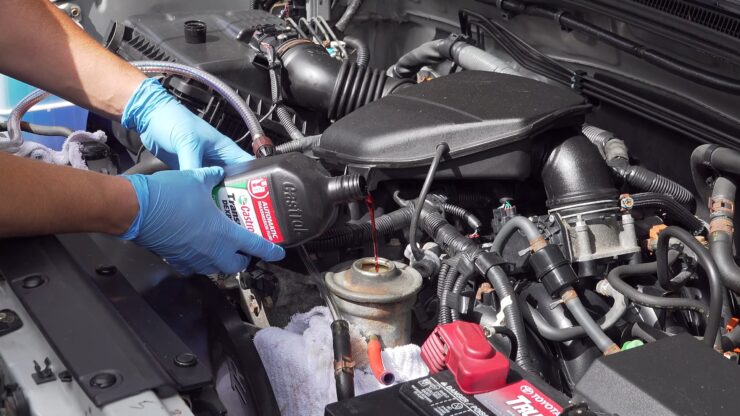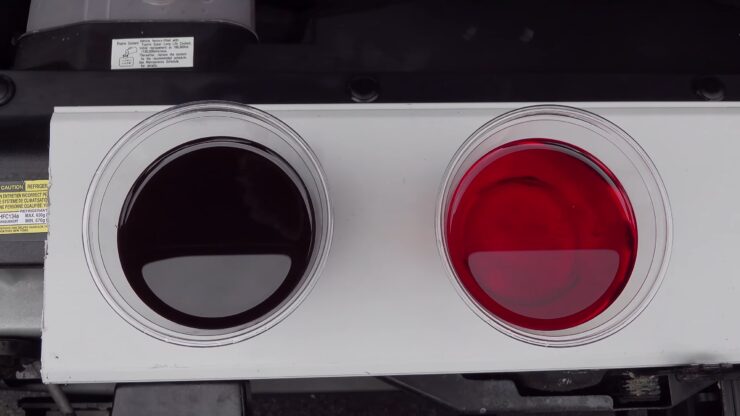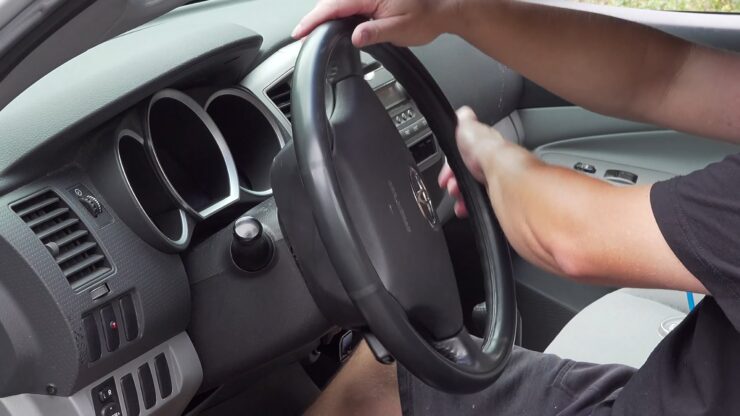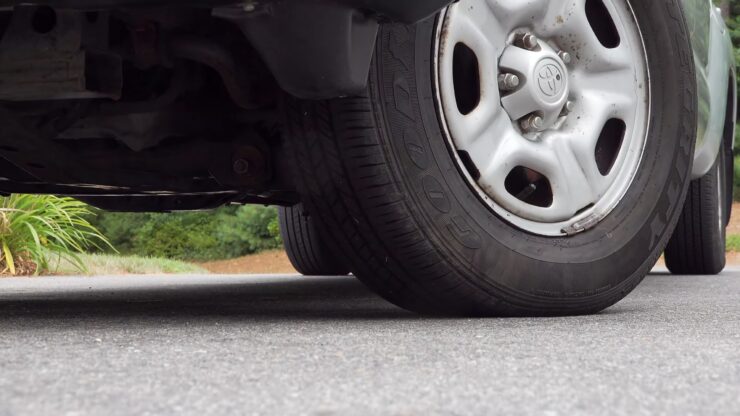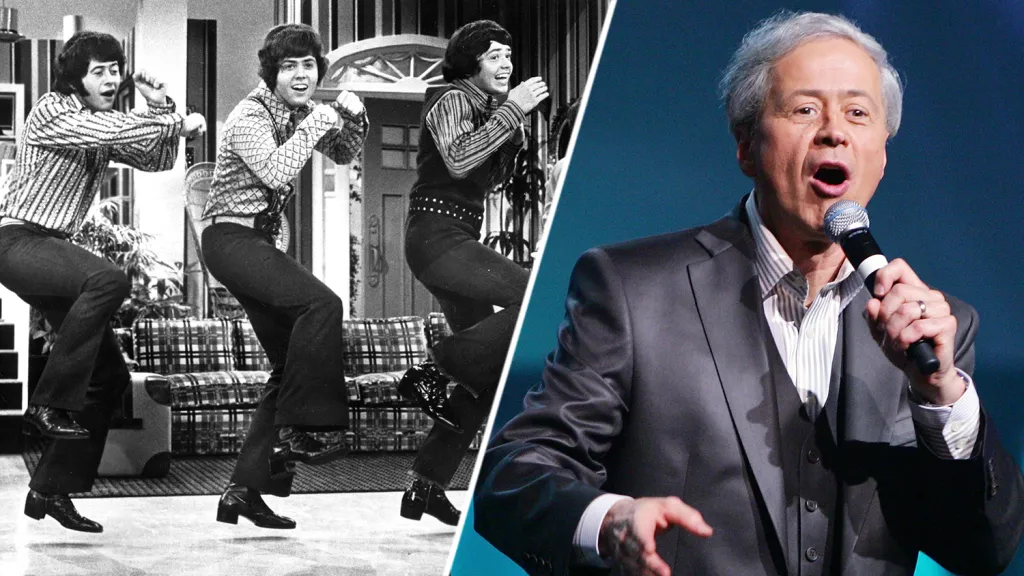Drivers often face a myriad of challenges while navigating the roads. From malfunctioning spark plugs and deteriorating catalytic converters to unexpected dashboard warning lights, vehicles can present unpredictable issues. No matter how well-maintained a car is, it’s never completely immune to problems.
Steering is a critical component that demands every driver’s utmost attention. A malfunctioning steering system not only compromises the driving experience but also poses significant safety risks. When your steering starts to emit unusual sounds, especially a persistent squeak during turns, it’s a clear red flag that shouldn’t be ignored.
In this article, we will delve deep into the various reasons behind the unsettling squeaking sounds your car might produce when taking a turn.
Our aim is to provide a comprehensive understanding of these issues and offer guidance on the best ways to address and rectify them. By the end of this piece, you’ll be better equipped to diagnose and tackle such steering-related challenges.
Causes Behind the Squeaking Sound
It’s always unsettling when your car begins to emit unfamiliar sounds. These auditory signals are your vehicle’s way of alerting you to potential problems.
A distinct squeaking noise when turning the steering wheel is no exception and warrants immediate attention. Whether you’re a seasoned driver or a newbie, it’s crucial to pinpoint the root cause of such sounds or seek expertise from a professional auto mechanic.
The steering system of a car is intricate, and several factors can lead to the emergence of that squeaky sound. Let’s delve into the potential culprits behind this noise.
1. Issues with the Power Steering System
The power steering system plays a pivotal role in ensuring a smooth driving experience. It’s no surprise that when something goes awry with this system, it’s often accompanied by noticeable sounds. The gentle hum of the power steering is familiar to most drivers, but a pronounced squeak is a clear indication that something’s amiss.
The power steering system is a complex assembly comprising the pump, steering box, and a network of hoses. A malfunction in any of these components can lead to that telltale squeaking sound when you maneuver the wheel.
Especially in older vehicles, wear and tear on the hoses and pumps are common culprits. Over time, these parts degrade and may need replacement to restore optimal function.
2. The Role of Power Steering Fluid
Just as vital as the mechanical components of the power steering system is the power steering fluid. This hydraulic fluid is the lifeblood of your car’s steering mechanism. It exerts pressure on the piston mounted within the steering gear, facilitating smooth turns and maneuvers.
The importance of maintaining an adequate level of this fluid cannot be overstated. A depleted or critically low fluid level can lead to the dreaded squeaking sound.
Without proper lubrication, the system struggles, leading to increased friction and the resultant noise. Moreover, neglecting to replenish the power steering fluid can compromise your vehicle’s handling, making turns cumbersome and potentially hazardous.
It’s essential to regularly check and top up this fluid to ensure a safe and noise-free driving experience.
3. Degraded Power Steering Fluid: A Hidden Culprit
Over time, the power steering fluid can deteriorate or become contaminated, leading to steering issues. As the components of the steering system wear out, minute particles can break away and mix with the fluid.
This contamination not only alters the fluid’s color, making it darker, but also affects its viscosity and performance.
When the fluid becomes thick and muddled with debris, it can lead to blockages in the system. These obstructions can cause increased friction, resulting in those alarming squeals and squeaks when you turn the wheel.
Regularly flushing and replacing the power steering fluid can prevent such issues and ensure the longevity of the steering system.
4. Steering Wheel vs. Interior Trim: A Noisy Confrontation
Another less obvious but equally problematic cause of squeaking is the steering wheel coming into contact with the interior trim. This is especially prevalent during hot weather conditions when the metal components of the steering wheel expand due to the heat.
As the metal expands, the space between the steering wheel and the interior trim diminishes, leading to them rubbing against each other.
This friction produces the squeaking noise many drivers dread. Not only is this sound annoying, but the constant rubbing can also accelerate the wear and tear of both the steering wheel and the trim.
Furthermore, this friction can compromise the ease of steering, making it harder to control the vehicle. In extreme cases, this can pose significant safety risks, as impaired steering can lead to accidents.
It’s crucial to address this issue promptly, ensuring both the safety of the vehicle’s occupants and the preservation of the car’s interior components.
5. Belt Troubles: More Than Just a Squeak
Belts play a pivotal role in the functioning of various car components, and when they start to wear out or become loose, they can be the source of that pesky squeaking noise.
The steering wheel belt, which facilitates the smooth turning of the wheel, can become slack over time. This is especially common in older or well-used vehicles where the wear and tear of years of driving become evident.
Another potential noisemaker is the fan belt. This belt is crucial as it connects and powers vital components within the engine.
If the fan belt becomes loose or deteriorates, not only can it produce a squeaking sound, but it can also lead to significant damage to the engine. It’s worth noting that vehicles typically have multiple belts, and any of them can be the culprit behind the noise.
6. External Factors: Terrain and Vehicle Age
Sometimes, the source of the squeaking isn’t a mechanical fault but external factors. For instance, driving on uneven or rugged terrains can exert undue stress on the tires.
This strain can lead to irregular wear patterns, affecting the tire’s depth and tread. As a result, you might hear a squeaking noise, especially when driving on specific surfaces.
On the other end of the spectrum, if you’ve recently purchased a new vehicle, the squeaking might just be a part of the car’s “settling in” process. New cars often require a “break-in” period where various components adjust and align.
During this phase, you might hear some noises, including squeaks, which should diminish as the vehicle gets more miles under its belt. However, if the noise persists, it’s always a good idea to consult with the dealership or a trusted mechanic.
FAQ
Do bad ball joints squeak?
Yes, bad ball joints can produce a squeaking noise, especially when the vehicle is moving over bumps or making turns. The squeaking arises due to the lack of lubrication or wear and tear of the ball joint.
Why is my front left wheel squeaking?
Several reasons can cause your front left wheel to squeak, including worn-out brake pads, a damaged wheel bearing, or issues with suspension components like the ball joints or struts.
Why does my car squeal when I reverse and turn?
A squeal when reversing and turning can be attributed to various factors, such as worn brake pads, issues with the power steering pump, or even a misaligned or loose belt.
Will ball joints squeak when turning?
Yes, if ball joints are worn out or lack proper lubrication, they can produce a squeaking or creaking noise, especially when the vehicle is turning.
Can I spray wd40 on my ball joints?
While WD-40 can provide temporary relief from squeaking, it’s not a long-term solution for ball joints. It can displace the grease inside, which is essential for the proper functioning of the ball joint. It’s better to use a lubricant specifically designed for ball joints.
What does a bad ball joint sound like when turning?
A bad ball joint typically produces a creaking or squeaking noise when turning. In more severe cases, you might also hear a clunking sound.
Do universal joints squeak?
Yes, universal joints (U-joints) can squeak when they start to wear out or when they lack proper lubrication. If not addressed, a squeaking U-joint can lead to more severe problems down the road.
Will new brakes squeak?
New brakes can occasionally squeak due to the presence of a thin layer of protective coating or because they are still “settling in.” However, this noise should diminish after a short period of use. If it persists, it might indicate improper installation or another underlying issue.
How do you fix squeaky brakes?
Fixing squeaky brakes involves identifying the root cause of the squeak. Common solutions include:
- Cleaning the brake components to remove dust and debris.
- Applying anti-squeal lubricant or brake grease to the back of the brake pads.
- Ensuring the brake pads and rotors are properly aligned.
- Replacing worn-out brake pads or rotors. If you’re unsure about the cause, it’s best to consult with a professional mechanic.
Summary
Navigating steering wheel complications can be intricate, and without the right approach, one might inadvertently exacerbate the issue. Addressing such problems can be approached in two main ways. The most straightforward solution is to consult a professional at an auto shop.
However, for those inclined towards a DIY approach, a primary step would be to replace the power steering fluid. It’s essential to ensure the container is intact and the fluid hasn’t surpassed its shelf life.
Another remedy could involve lubricating the vehicle’s moving components or adjusting the suspension, as these elements might be contributing to the unsettling sounds.


